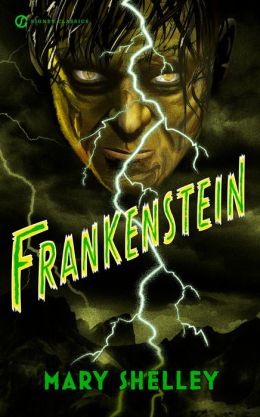It's Halloween tomorrow night and my tradition is to read by candle light. Something about the flickering shadows spooks me. There is a superstition to have a candle burn at your window to let the gouls and other beasties know that you are home and alive and not to come creeping. It is also supposed to be a beacon for loved ones who have passed on, to visit and come home, while the veil between worlds is at its thinnest.
This year I will be reading Frankenstein.
Hook
This is important in all writing. You have to make your readers interested in what you are writing about. Your characters should make your readers FEEL. Make your characters loveable or loathsome, but the reader has to care about the characters. All suspense writing starts with the reader’s empathy and then reader’s concern.
Set up. Twist.
The greatest example of the set-up-twist is the two sentence horror story. Here is one taken from sunnyskys/blog by Therealhatman:
The greatest example of the set-up-twist is the two sentence horror story. Here is one taken from sunnyskys/blog by Therealhatman:
“I woke up to hear knocking on the glass. At first, I thought it was the window until I heard it come from the mirror again.”
The reason that this works is because it has a set up. The reader is set up to think a certain way, a false sense of security even, and then the second sentence is the twist that makes you think very differently about the first. In a short story or a novel you can do this in every chapter by creating conflict between characters or in a scene. The secret is in the twist, so let your imagination run wild!
You can extend the ‘set up’ for as long as you like which brings me to number two.
Avoid the dot dot dot
Suspense is a very important part of writing scary stories. A cheat to build suspense in your writing is to make big promises of action, give the reader more information than the characters, extend moments of uncertainty and always keep your promises.
A couple plan to meet at a meeting point. That is a promise of action.
But the young man’s rival finds out and hides at the meeting point with a gun. Giving the reader more information.
The couple arrive at the place with no idea of the danger. Extend this moment for as long as possible and the reader will be on the edge of their seats waiting for the rival.
Conflict. Either a fight, or a murder, or another character arrives, whatever works for your story. Keep your promises.
Remember though, that a murder or violence is not suspense. Too much violence or gore will start to not mean anything to your readers. A murder is not suspense writing. An abduction with the threat of murder is.
NOTE: Using Elipses (…) is actually the worst and a very lazy way of building suspense, avoid the dot dot dot!
Description
One of the greatest writing tips of all time is: Show Don’t Tell. Most people don’t even notice when writers use this technique but it is what turns a good story into a great one. It can be hard, when you are writing a story to spend time on the description especially when you have a really good idea you just want to get on the page as quickly as possible. But when it comes to suspense writing you HAVE to show not tell and it really helps to extend those moments of uncertainty I mentioned. It will also make your moments of conflict when you keep your promises really exciting.
An example of show don’t tell:
Tell: Megan shot him. Show: The smell of gun powder filled the air and Megan’s arm jolted back into her shoulder as the gun went off. She hardly heard the bang before her ears were ringing. She stared across the room, where a trickle of black blood was already being sucked up by the carpet; she could almost hear it.
Use all of your senses for description so that the reader is drawn into the scene.
READ
If you want to write scary stories READ scary stories. This goes for any kind of writing. This doesn’t mean just copy an author you like. There is actually a part two to this tip.
Read and Analyse.
When you begin to feel scared while reading, stop and think HOW the writer made you feel that way. Once you understand the technique they’ve used you can use a similar technique on your own story. Maybe you will notice a Set Up-Twist or the building of suspense. Take note of how the author did it and you can start to practice it with your own writing.



